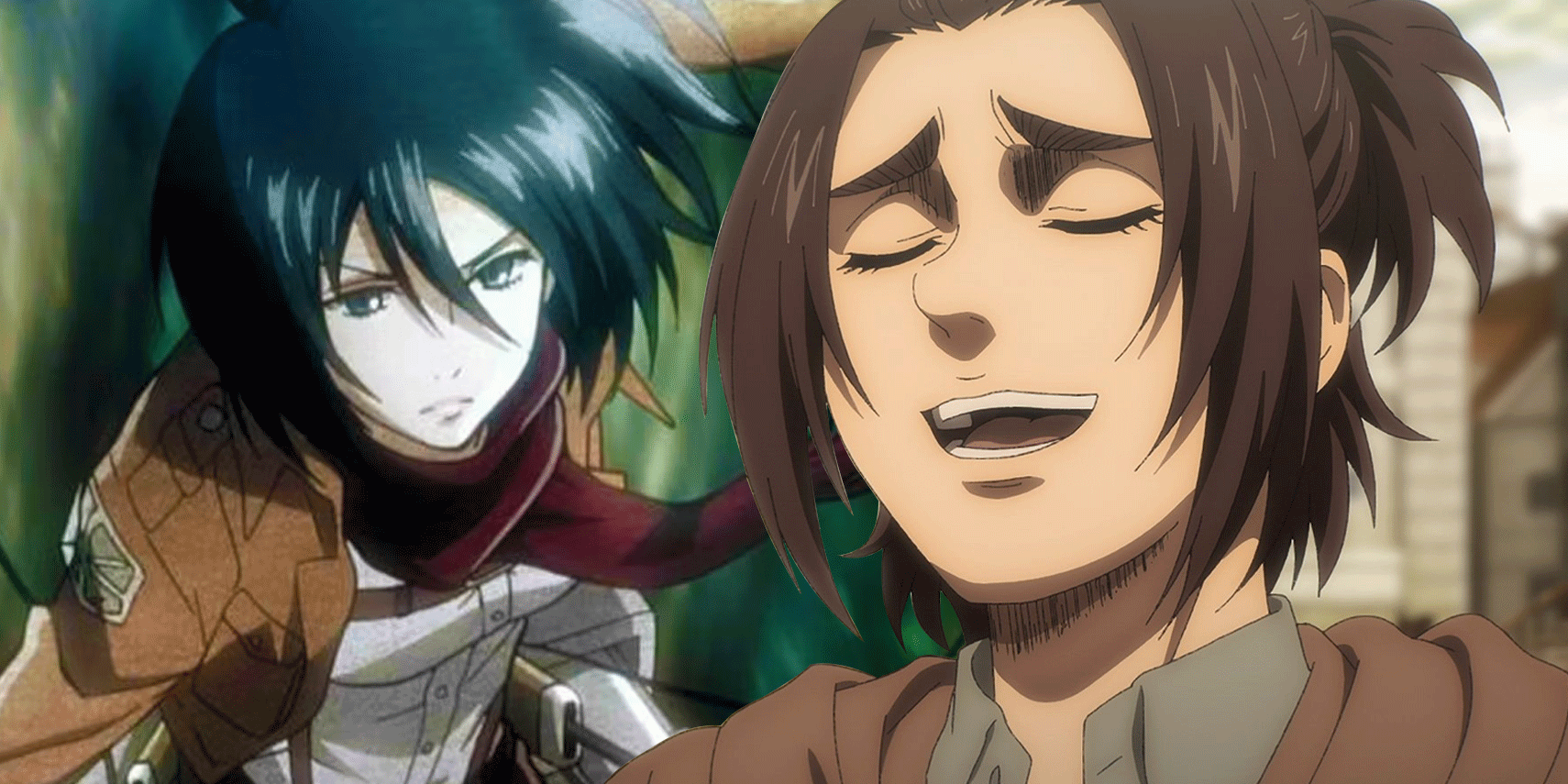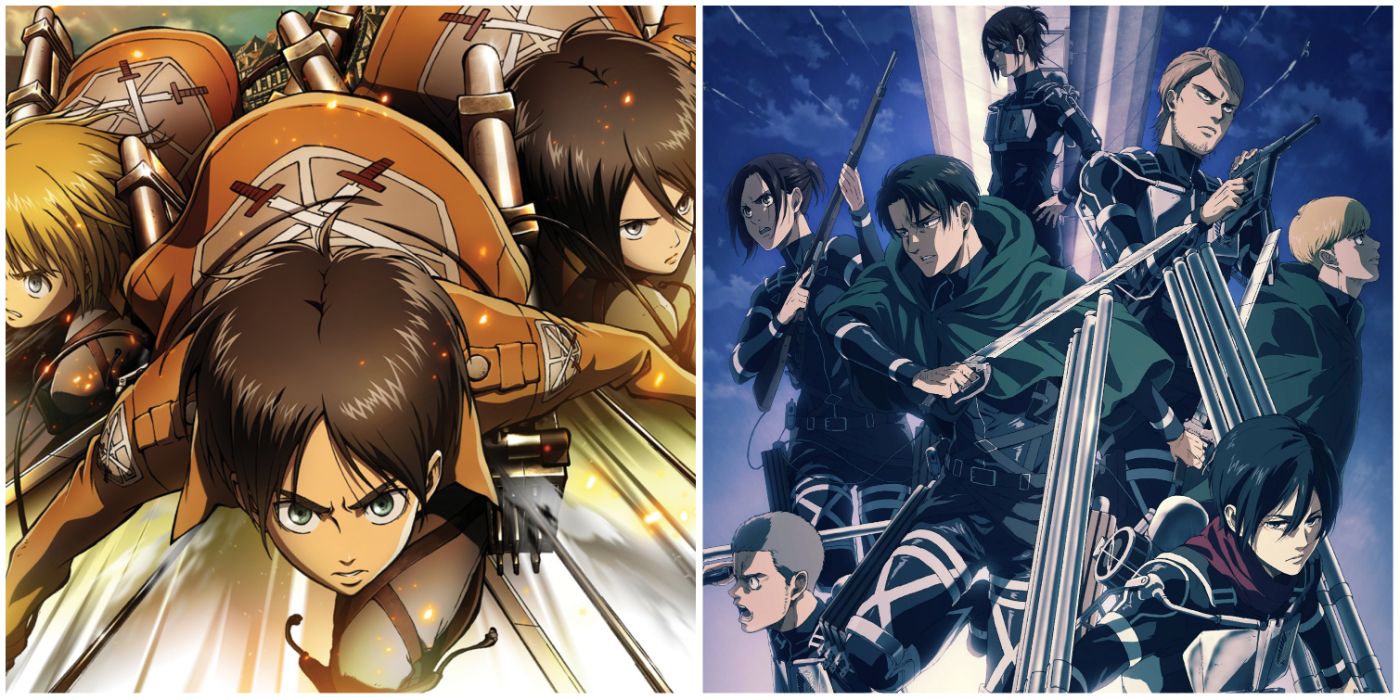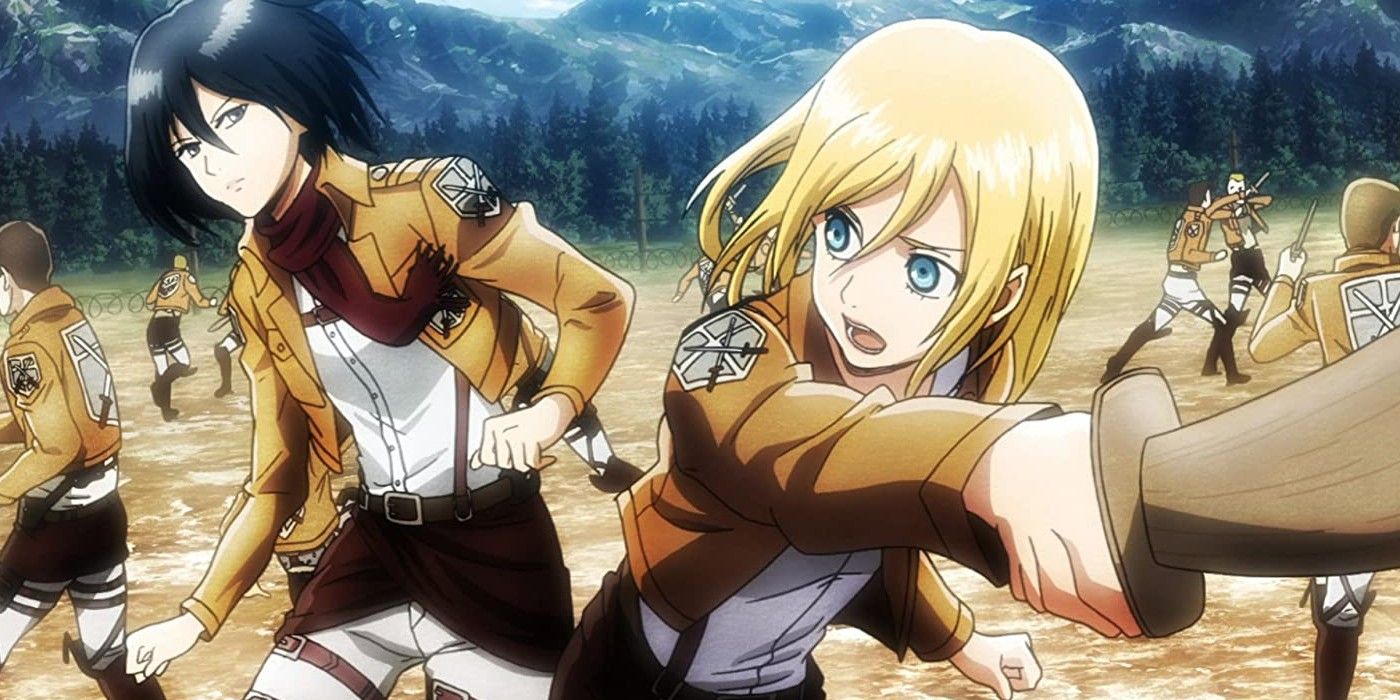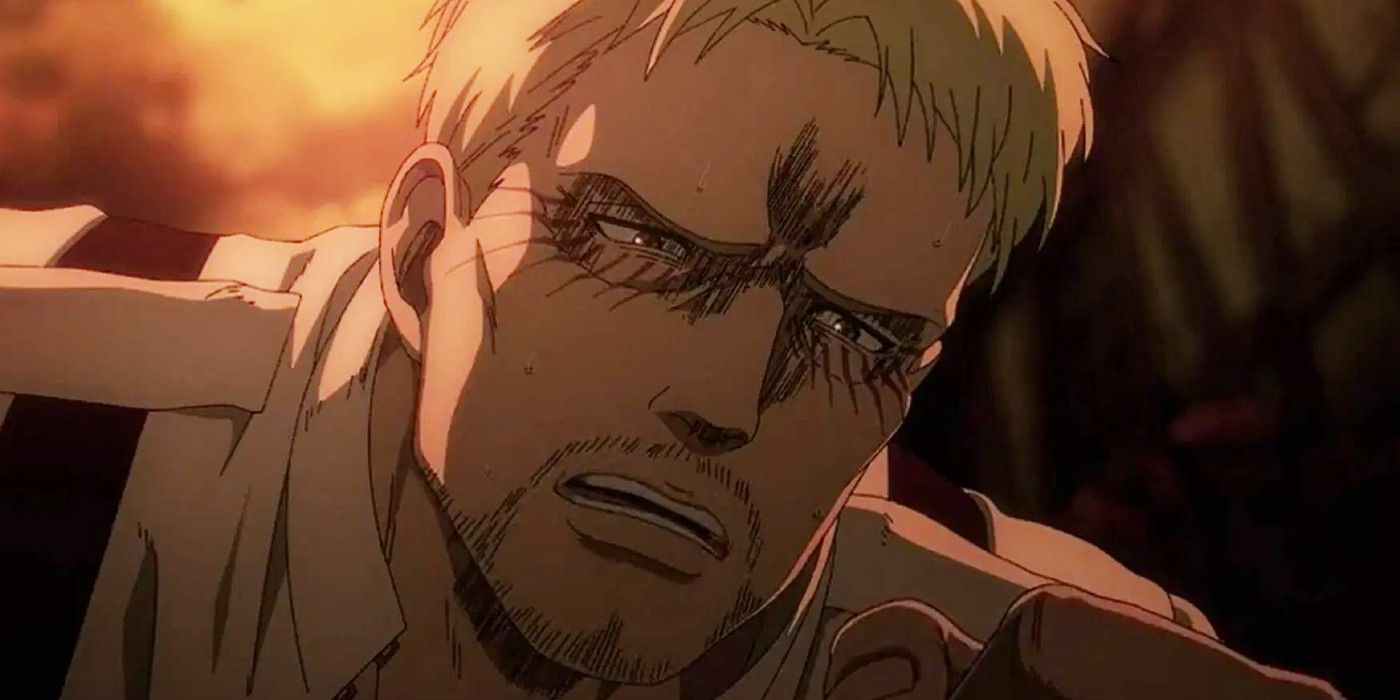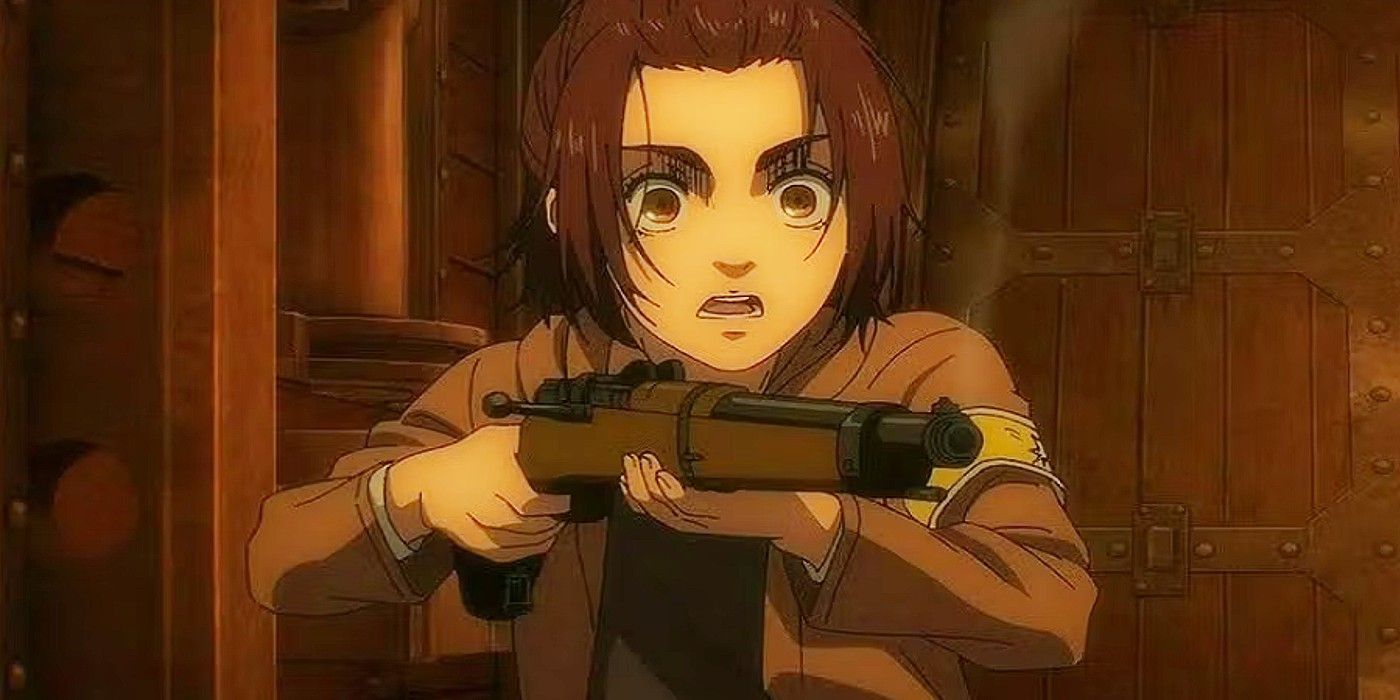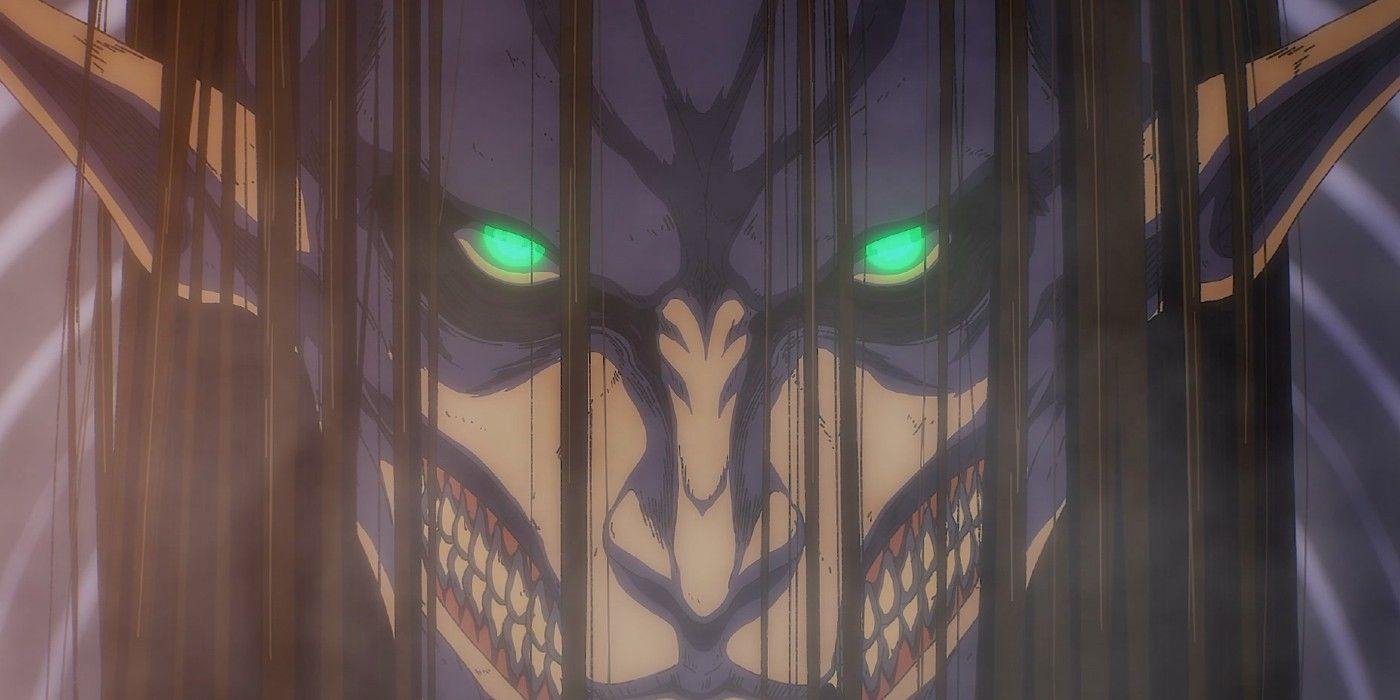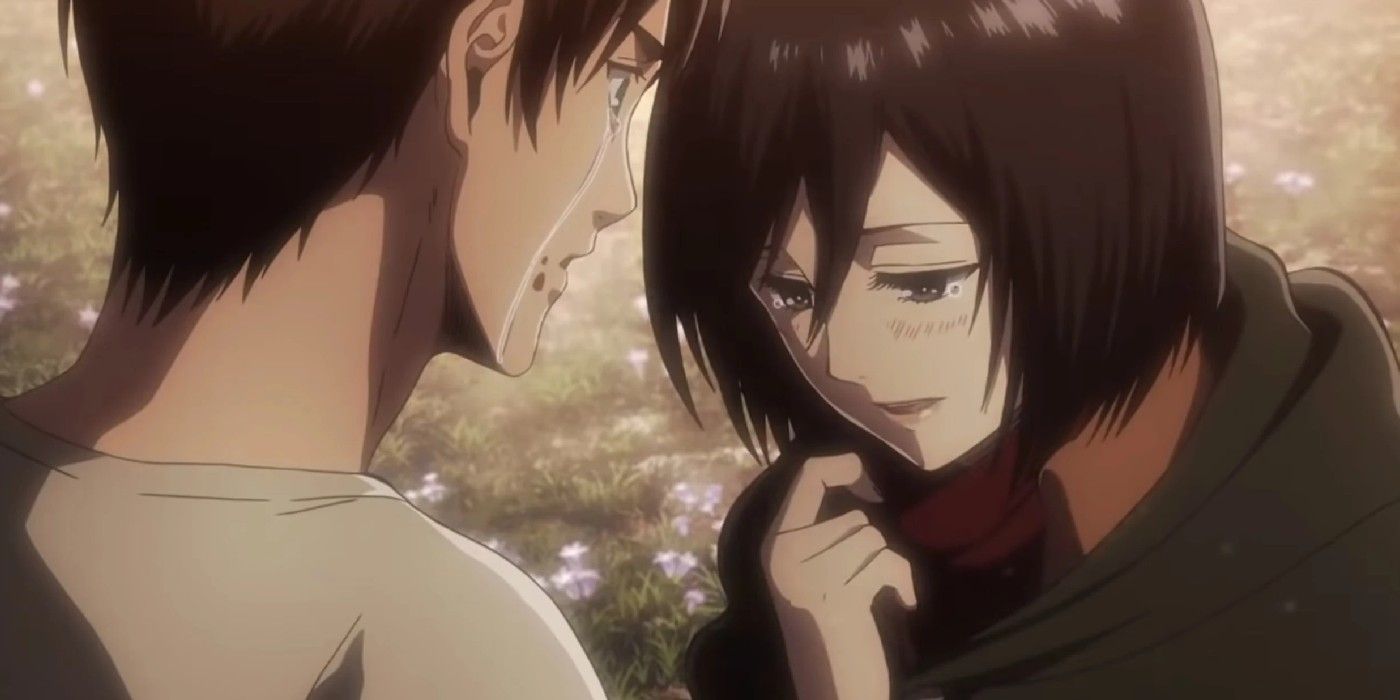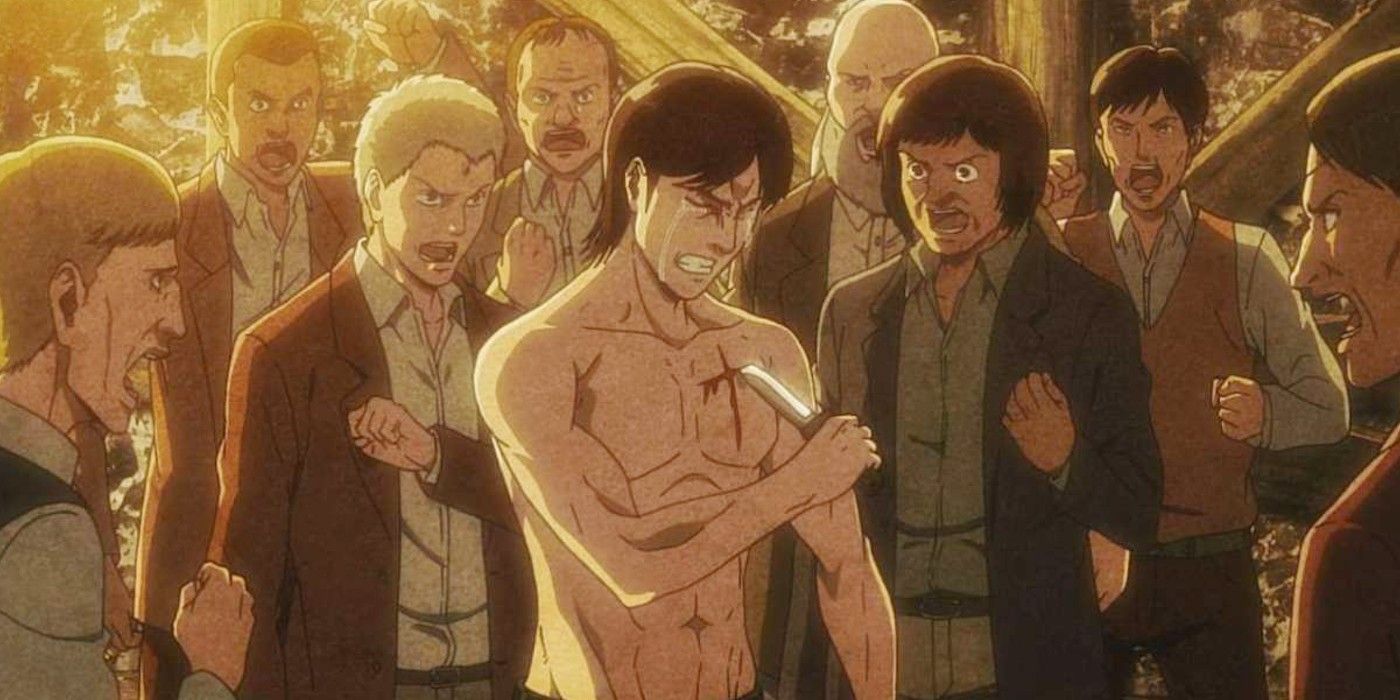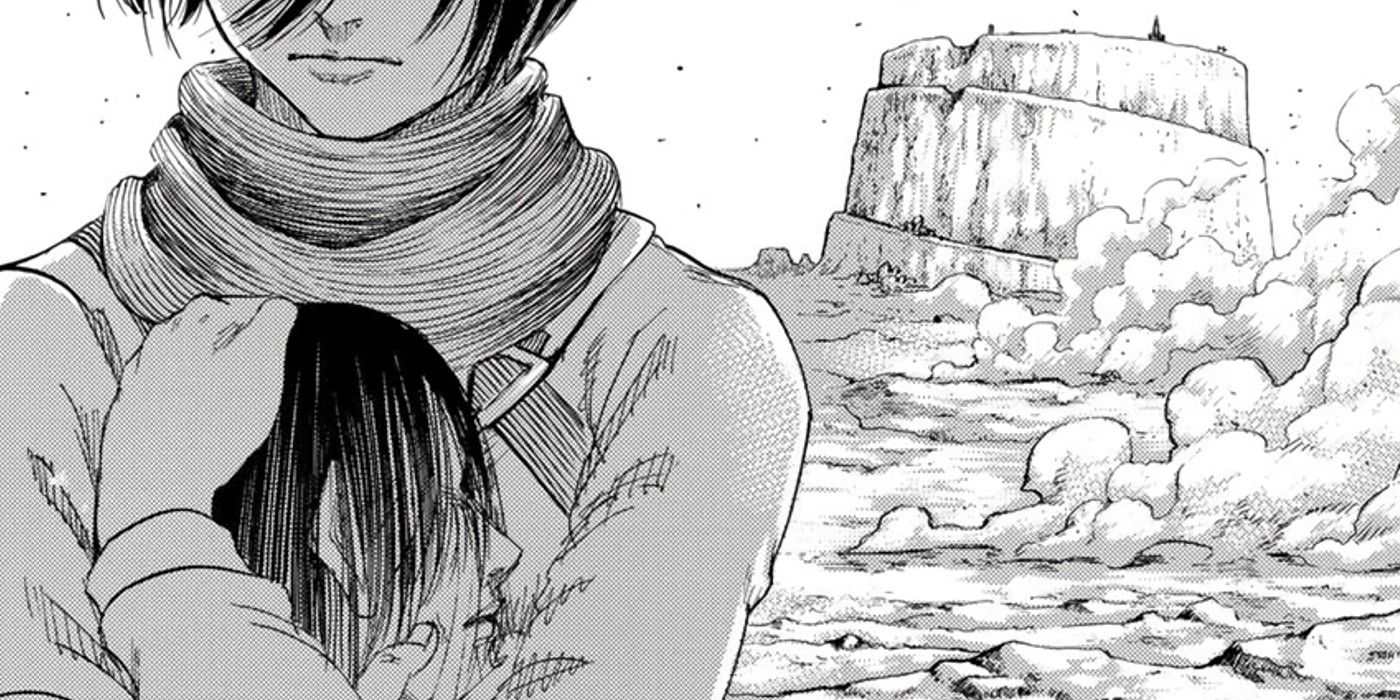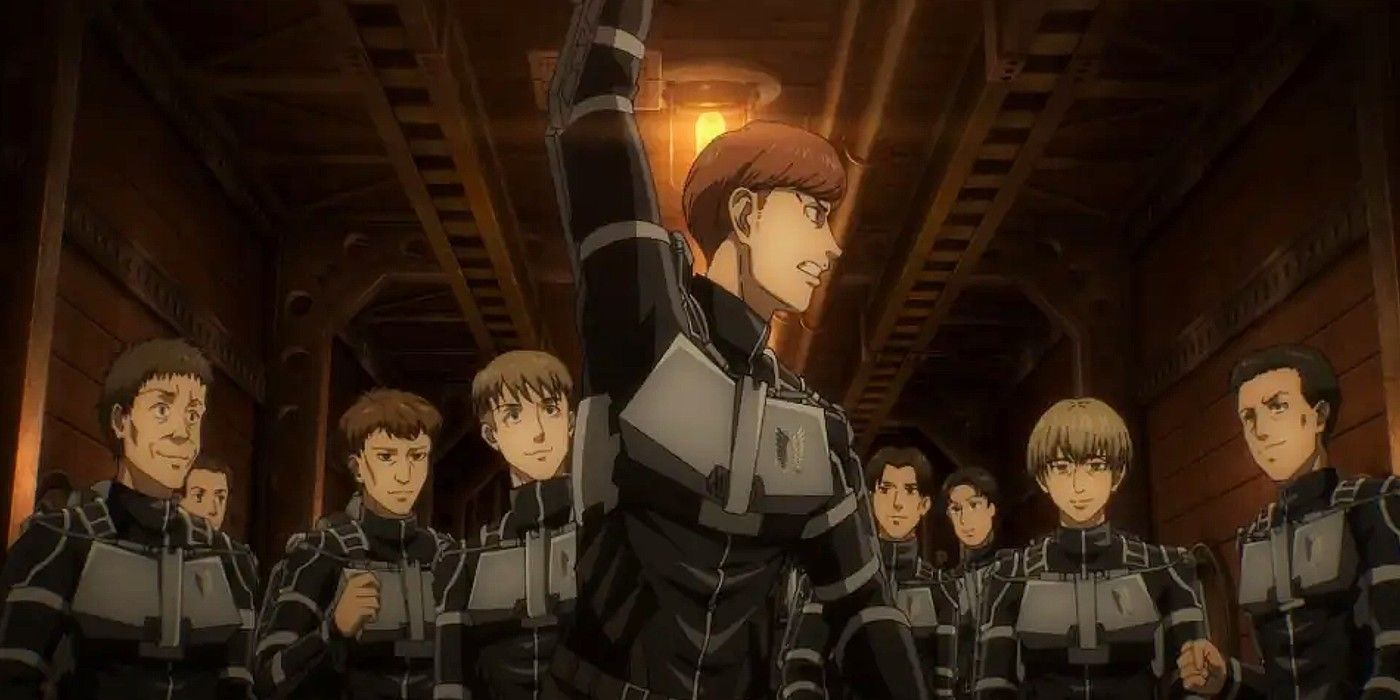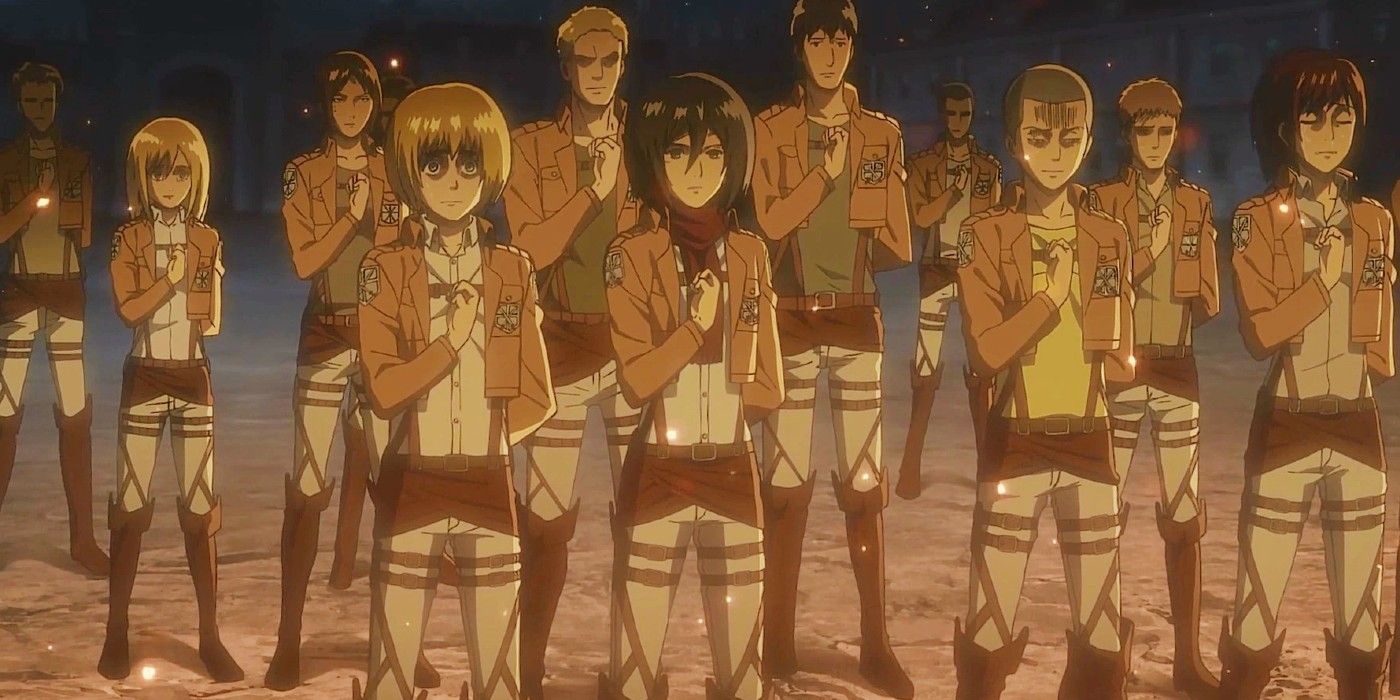It will be a long time before another anime captures the world's imagination and changes the anime landscape the way Attack On Titan did. The Survey Corps' battle against the Titans single-handedly launched anime into the global mainstream, but that doesn't mean the anime is safe from harsh criticism, or that it's universally loved.
Despite its popularity and artistic relevance, Attack On Titan is a lot more divisive than most people realize. At best some creative decisions taken by mangaka Hajime Isayama or the animators just didn't sit well with everyone. At worst, naysayers had good reason to take offense to core parts of Attack On Titan's story and themes.
This article contains spoilers from the Attack on Titan manga.
10 The Anime's Studio Change Was Divisive
After animating Attack On Titan since 2013, Wit Studio handed the reins over to MAPPA in 2019, just in time for the final season. Generally speaking, this change was accepted and understood by fans, but there were some detractors. This is really more of a matter of preference, but there are those who strongly preferred Wit's style to MAPPA's.
Wit's Attack On Titan had gritty and sharp visuals, while MAPPA's was more polished and refined. Given the story's tone, some fans wished Wit stayed to the end. Not helping MAPPA's case were its exposed unforgiving work conditions, which made even the most dedicated viewers wonder if a good anime was worth the animators' health and wellbeing.
9 The First Season Didn't Age That Well
Attack On Titan's first season legitimized Wit Studio overnight in 2013 but, momentarily ignoring its historical significance and some truly stellar feats of animation, it didn't age perfectly. Watching Eren Yeager's journey from the beginning today can be a bit rough, especially now that the pilot season's shortcomings are more obvious.
From glaring shortcuts like an over reliance on still frames to a hurried pace to watered down gore (especially when contrasted to the manga), Attack On Titan's first 25 episodes are a mixed bag. Wit improved later on and benefited from the three-year hiatus between Seasons 1 and 2, but Season 1 isn't as timeless as some would hope.
8 Reiner Braun Was The Main Character All Along
After following Eren's perspective for three seasons, Attack On Titan threw a curveball in its final season by giving Reiner the protagonist's role. It could even be argued that Reiner was the main character this whole time. This creative risk was praised by most fans, but others found it too inconsistent and jarring for their liking.
Some viewers were so invested in Eren's descent into darkness that they would've preferred if Attack On Titan followed him up until the final war, not switch to Reiner at the last second. That's not to say that Reiner's tragedy and parallels to Eren were poorly executed; these viewers just wanted Eren to be the focal character all the way through.
7 Literally Everything About Gabi Braun
No new anime character attracted as much hate and vitriol as Gabi did, especially since she killed the fan-favorite Survey Corps member, Sasha Braus. At first, Gabi just seemed to be a precocious child soldier who was forced to fight for a country that hated Eldians like herself, but then she became Attack On Titan's most despicable character.
In truth, Gabi was an unsubtle and dark reflection of Eren's fiery younger self. What's more, Gabi reinforced Attack On Titan's themes of how two sides of a war were more alike than they wanted to admit. Despite this, a good chunk of the fanbase still can't forgive Gabi for killing Sasha, and they also find her loud attitude annoying.
6 Eren Yeager Was The Villain This Whole Time
Attack On Titan is famous for its world-breaking twists, and Eren being the final villain was one of its most shocking revelations. As it turns out, Eren's fight for humanity in the beginning wasn't his call to heroism, but his downfall to evil. Almost everybody loved this turn of events, but this monumental moment wasn't immune from criticism.
For some, Eren's villainy was hard to believe, and they felt it contradicted his character development. Worse, in the manga, Eren's villainy was an act he put on to scare the world into uniting against him. It's as if Attack On Titan tried and failed to strike a compromise between Eren's heroic and evil selves, and this may or may not change in the anime.
5 Mikasa Ackerman's Devotion To Eren Is Polarizing
It goes without saying that one of Attack On Titan's most contentious points is Mikasa's relationship with Eren. After Eren saved her from human traffickers when they were just kids, Mikasa dedicated her life to Eren and loved him unconditionally. For some, this was a compelling backstory, but most felt this hindered Mikasa's potential.
From the moment she debuted and especially when she wielded her swords, Mikasa was regarded as one of the best new anime heroines. However, her fans felt that her devotion to Eren held her back and reduced her to a love interest. Instead of being her own person, Mikasa's entire being and reason for fighting began and ended with Eren.
4 The Truths Of Paradis Island Have Undeniable Baggage
When it began, Attack On Titan presented Paradis Island as humanity's last sanctuary from a world overrun by Titans. As it turns out, Paradis was a tiny nation abandoned by the larger world. To the world, Paradis was a penal colony for the Eldians, and their torment at the Titans' hands was righteous punishment for their imperial ancestors' sins.
On its own, this is one of the best and most iconic anime twists of recent memory. When viewed outside a vacuum, it's hard to ignore the parallels between Paradis and Japan. Critics read Paradis' story as thinly veiled apologia for Japan's dark wartime past and atrocities, and this shines an unfavorable light on an otherwise well-received anime.
3 The Manga's Ending Will Divide Fans
There was no manga finale as highly anticipated as Attack On Titan's, but its last chapter was more divisive than fans expected and hoped. In fact, the original version of Chapter 139 caused such a stir among readers that an improved version that came with new pages and rewritten dialogue was released shortly after.
In brief, Chapter 139 made everything seem pointless. Eren's villainy was fake, war resumed a generation later, the Eldians were presumably wiped out, and the cycle of war repeated. Though the finale's themes were clear, their execution and the chapter's rushed nature left a lot to be desired. Only time will tell if this will be changed for the anime.
2 The Anime & Manga Revived The War Genre, For Better & Worse
During the 2000s, the war anime struggled for relevancy, especially now that premier war dramas like Mobile Suit Gundam weren't as big as they used to be. Attack On Titan revived the long-stagnating genre in 2013, but it had a noticeably different take on war. Instead of condemning militarism, Attack On Titan encouraged it.
Broadly speaking, almost every problem in Attack On Titan was solved through military means. The fact that some of the main characters espoused fascistic rhetoric didn't help the anime's case. Attack On Titan's fans don't mind this and see this as just another perspective of a familiar topic, while the anime's critics consider this to be a dealbreaker.
1 Hajime Isayama's Political Beliefs Were Anything But Subtle
One of the most consistent criticisms against Attack On Titan are about its politics, which leaned conservatively rightward at best and were blatantly fascistic at worst. Attack On Titan's creator, Isayama, never hid his militaristic interests and nationalistic beliefs, and his alignments shined clear as day in his most famous work.
Attack On Titan's most dedicated fans don't mind this, and feel that the story wouldn't be as interesting as it is were it not for Isayama's beliefs. Conversely, there are those who read Attack On Titan as an endorsement of isolationist nationalism and zealous patriotism. Needless to say, Attack On Titan's subtext always sparks heated debates.

